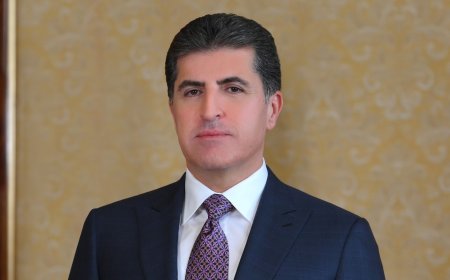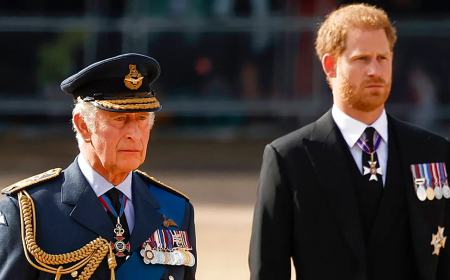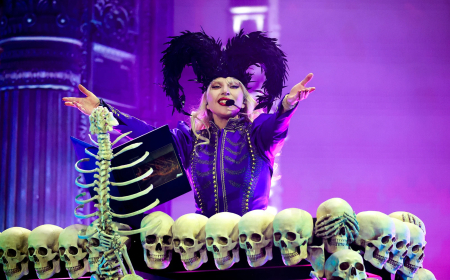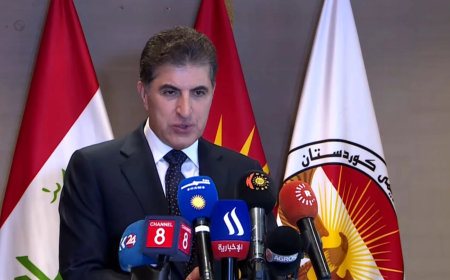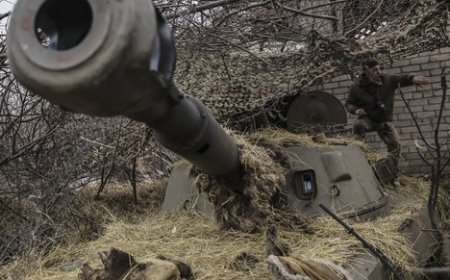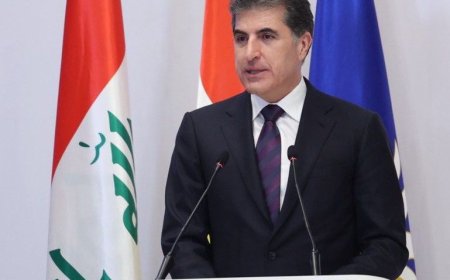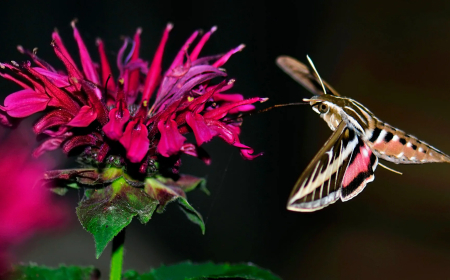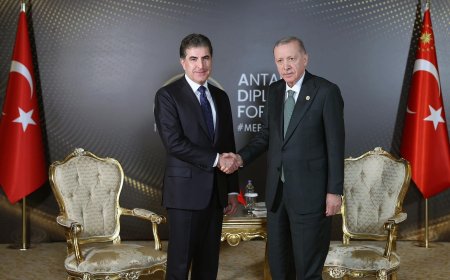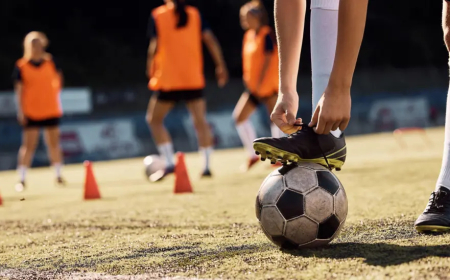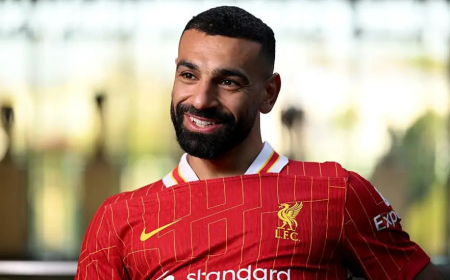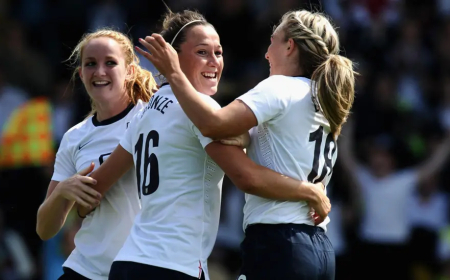What does the 'definition of a woman' ruling mean for sport?
The question over whether transgender women can participate in women's sport has been a high-profile issue in recent years.
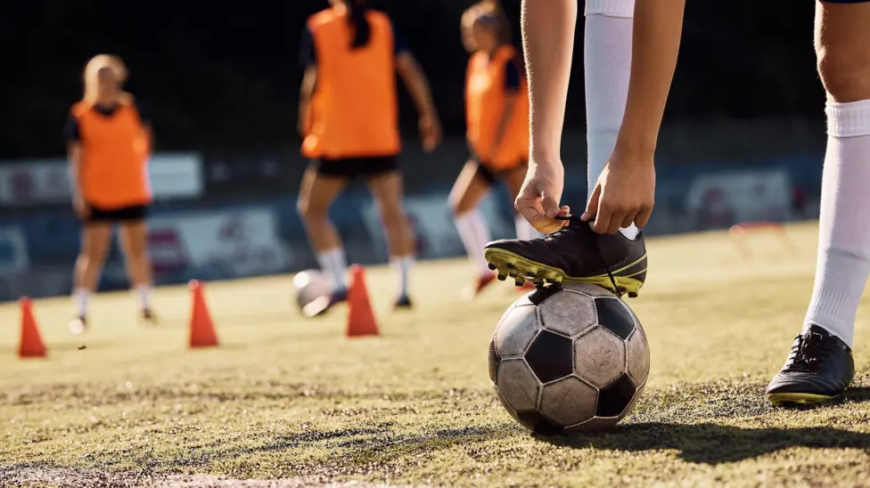
So the UK Supreme Court's ruling that the legal definition of a woman is based on biological sex is likely to have implications for sport at all levels from the elite to the grassroots.
On Wednesday, judges at the country's highest court determined that the "concept of sex is binary", and that a person with a Gender Recognition Certificate (GRC) in the female gender "does not come within the definition of a woman".
Judge Lord Hodge, announcing the ruling, said that it should not be taken as a triumph for one group in society over another.
A UK government spokesperson said that the decision "brings clarity and confidence for women, and services such as hospitals, refuges, and sports clubs".
"Single-sex spaces are protected in law and will always be protected by this government," the spokesman added.
So what does the ruling mean for female athletes, what impact could there be on transgender participants, and what has the reaction been?
Are transgender women allowed to compete in women's sport?
In recent years, many governing bodies in sport have amended their rules about the inclusion of transgender athletes at the elite level, moving more towards restrictions.
Athletics, cycling and aquatics, for example, have implemented outright bans on transgender women taking part in women's events.
In 2022, British Triathlon became the first British sporting body to establish an open category in which transgender athletes can compete.
Other sports have instead put in place eligibility criteria.
Earlier this month, the English Football Association introduced stricter rules, but would still allow transgender women to continue to compete in the women's game as long as their testosterone was kept below a certain level.
The FA said there were 20 transgender women registered to play amateur football in England among the millions who play at that level, and there were none in the professional game across the home nations.
Current International Olympic Committee (IOC) guidelines allow individual sports to decide on the best approach to balancing "inclusion and fairness".
At the Tokyo Olympics in 2021, weightlifter Laurel Hubbard became the first openly transgender athlete to compete at an Olympic Games in a different category to that which they were born.
At a grassroots level, Parkrun deleted all records from its website in 2024 when campaigners demanded it exclude transgender athletes from its women's category.
How might the ruling affect elite sport?
The ruling does not lead to any immediate change regarding eligibility in elite sport. Governing bodies are not now compelled to amend or reconsider their rules.
The weight of the ruling is likely to influence policy-making over time, and may lead to more sports banning transgender women from competing in women's categories.
"There are still a lot of unknowns here," says Dr Seema Patel, associate professor in sports law at Nottingham Law School.
"A lot of sports governing bodies already have ineligibility for transgender athletes, so I don't know if it's going to change much given the current state of play.
"I think the impact will be determined by what level of research and resource the government wants to put into this to understand the sporting context."
Many sports have introduced new policies around transgender athletes in recent years following some high-profile cases.
In 2023, British Cycling banned transgender women from the women's category after Emily Bridges, the country's high-profile transgender cyclist, was stopped from competing in her first elite women's race.
Last year, more than 100 elite British sportswomen told BBC Sport they would be uncomfortable with transgender women competing in female categories in their sport.
Many of them expressed fears over sharing their opinion publicly because of concerns they would be seen as discriminatory.
One told the BBC "your career is over" if you speak on the subject, while another said: "You can receive abuse if you support it or don't support it. Damned if you do, damned if you don't."
Former British swimming champion and OIympic silver medallist Sharron Davies has been a vocal critic of transgender women competing in sport.
"I am obviously extremely pleased," she said.
"It been 10 years since I have been battling for fair sport for women against this absurdity that biological reality doesn't exist and it doesn't affect something like sport, so it's been a very good day.
"I think it's just really important that we can define what a woman is, and that biology exists and that you cannot change your sex as human beings.
"It doesn't mean to say that we can't respect people across the whole of society however they wish to present themselves, and this had never been my position that everyone shouldn't be involved in sport.
"Let's hope now that all sports, including the FA [Football Association] and the ECB [English Cricket Board], will do that and they will stop discriminating against women and girls."
What about the impact on grassroots clubs and leagues?
Far more transgender people compete in grassroots sports than at the elite level.
Grassroots sports leagues and clubs often have much looser eligibility criteria, because the level of competition is lower.
But, as this level of sport is not reported on, it is difficult to get a full picture of what is happening, beyond occasional stories that surface.
There have also been concerns raised about the use of shared spaces such as changing rooms and toilets.
It could be this level of sport where these changes are felt the most.
Davies added: "What's happened is we have found many, many sports have been protected after being pushed very hard. But they haven't protected grassroots, they haven't protected juniors, they haven't protected pathways and they haven't protected recreational female athletes.
"It is now time to protect every female athlete."
But for some transgender women partaking in grassroots sport, the ruling has led to fear of outright exclusion or abuse.
"What I'm sure we'll see is greater reticence from transgender people to engage with sport and physical activity," says Natalie Washington, campaign lead for Football vs Transphobia.
"We know that this is a group of people that are adversely affected by not being able to access social benefits of being involved in sport, and this is just going to make this harder again.
"Whenever there is a legal or governmental ruling on this, or an organisation takes a position, there is an uptick in abuse. Transgender people who are just out for a run are now more likely to get abuse shouted at them.
"I don't see how this gives great clarity. If someone wanted to stop the operation of gender-inclusive leagues, would they be now able to? That feels much less clear to me today than it did yesterday."
In a statement welcoming the Court's decision, a spokesperson for the Women in Sport charity told the BBC the group hoped other sports would have the "confidence to protect the female category for natal women while finding solutions to enable transgender people to participate and compete".
"We have a responsibility to advocate for safety and fairness at every level in the sporting system, from grassroots to elite," the spokesperson added.
"We believe that everyone deserves the right to experience sport, and that to be safe and fair women and girls require a female category in almost all sports."
(Source:BBC)




